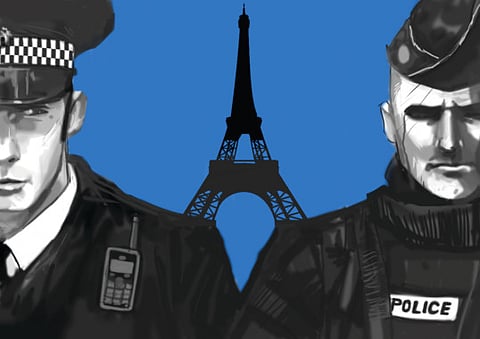How terror could bury Brexit
Paris underpins Cameron’s intuition that, to play a role in a reformed EU, there is no alternative regarding security policy

What’s a politician most afraid of? British Prime Minister Harold Macmillan’s famous answer to the journalist’s question is more relevant than ever: “Events, dear boy, events.”
If you add the Paris death toll to the number of victims who died after Daesh (the self-proclaimed Islamic State of Iraq and the Levant) bombed a Russian plane over the Sinai, that’s 353. And the previous day’s attack on Beirut takes the number to 400 civilians assassinated by Daesh.
How has the British government reacted? London was the victim of Al Qaida a decade ago, when 52 people were killed in the attacks against public transport system. July 2005 was Britain’s wake-up call. Ever since, security has remained a top priority, measured in the surveillance cameras on every other street corner, near public arenas, shopping malls, train stations.
In terms of the state of security, the United Kingdom goes far beyond what would ever be authorised in France, or what the German public would ever accept. British Prime Minister David Cameron’s government is currently working on a new wiretap law, which is much more likely to pass in the wake of the Paris attacks.
An entirely different question is the one concerning military readiness. In 2003, when the then-prime minister Tony Blair donned his “special relationship hat”, he had no reservations about helping the United States in Iraq. Cameron, on the other hand, hesitates to ask for parliamentary approval to send the UK’s eight Tornado aircraft to Syria.
In 2013, when Cameron asked the Lower House for a mandate to punish Syrian President Bashar Al Assad for using chemical weapons on his people, lawmakers rejected the request. Another defeat would be fatal for him, so the man in Downing Street must first make sure to have an absolute majority on his side before undertaking anything.
A crucial letter
Across the English Channel, an unexpected consequence of the Paris attacks is that they’ve affected negotiations concerning the referendum to remain in the European Union (EU) and the risk of the so-called Brexit. The climate appears to have reversed. The events in Paris underpin Cameron’s intuition that, to play a role in the reformed EU, there actually is no alternative regarding security policy. Since November 13, the European priorities have been collaboration, support and security — more than ever.
As if anticipating the events in Paris, Cameron penned a letter to European Council President Donald Tusk, acknowledging “the benefit of a close collaboration on security issues”. In a speech accompanying the letter, he called the EU “an important political instrument, similar to organisations such as Nato or the UN”.
Britain’s talk of reforming its relationship to the EU hadn’t been forgotten, but the Brexit debate is now getting the international attention that it had been missing to date — thanks to the events in Paris.
In the light of much-needed unity to face the terror, Europeans too will consider what Britain is really worth and how it fits into the EU. Maybe they will understand better now why the island nation has always kept its distance from a Europe without frontiers, now that refugees are threatening the principles of the open-border Schengen Area.
But if you think that the British want to retire to some sort of “splendid isolation”, you’re mistaken. The country knows a true variety of different cultures, with a much more global orientation than what can be seen in many parts of the Continent. It’s something that Charles de Gaulle understood in 1963, when he refused Britain’s application to become a member of the European Economic Community. He claimed that it “would never truly want to become a part of Europe.”
But Britain has changed its position and Cameron’s point of view has clearly evolved since the days of De Gaulle. Nevertheless, we must not forget that Britain isn’t interested in unity for the sake of unity, but rather how it can benefit the country’s own struggle to survive.
— Worldcrunch, in partnership with Die Welt/New York Times News Service.


